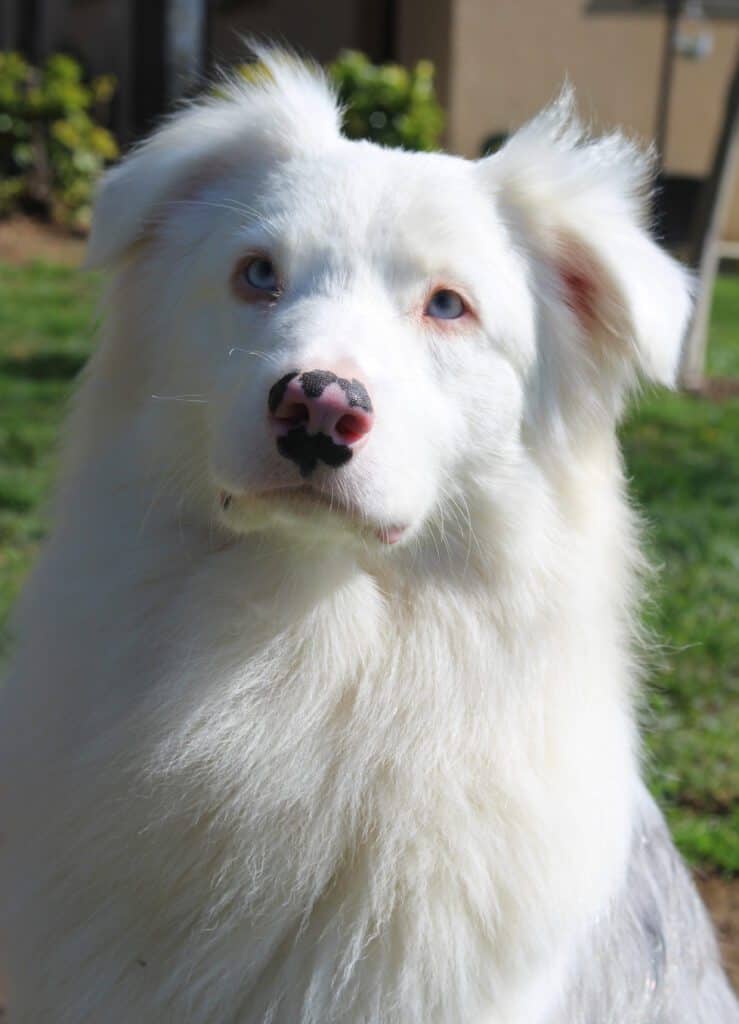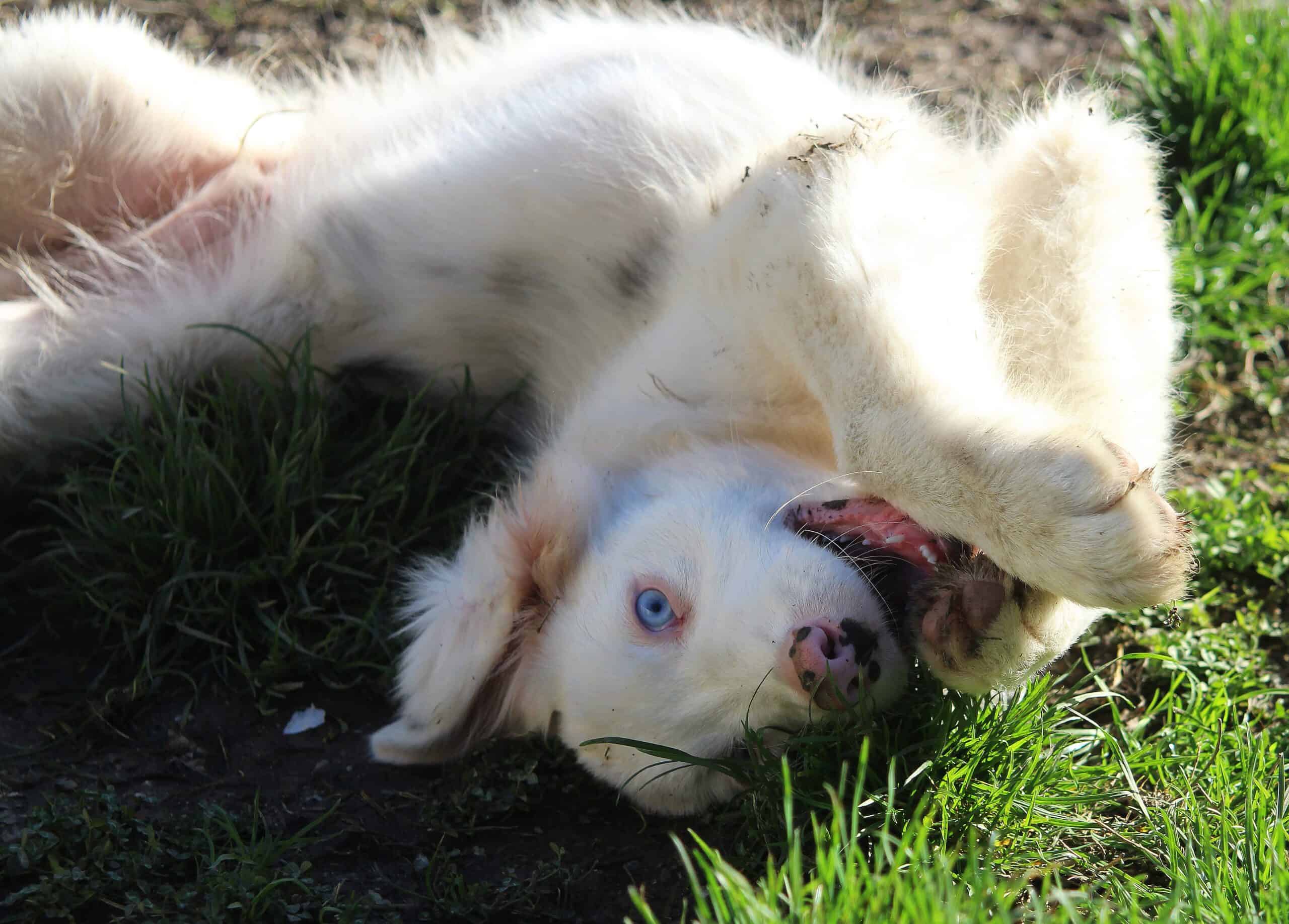How to prevent your dog from having seizures using nutrition
After my dog Lucas started having seizures, I began to research the link between nutrition and seizures. As with many other diseases, nutrition usually plays a big role. What I found was that there are many foods that can trigger or play an important role in seizure activity. I also found many natural supplements. They can protect the brain and calm the nervous system. This lessens or even halts seizures.
I spent weeks going through many scientific publications, anecdotes, and personal accounts. Then, I compiled what I think is a complete diet to reduce or even stop seizures. I am sharing these discoveries here. I hope this information can help other dogs with seizures.
Before talking about nutrition, I want to say that seizures are a medical emergency. If your dog has seizures, first, contact your vet to rule out any medical problems causing the seizures. Then, take appropriate action. Never self-diagnose. Don’t rely only on natural treatments without first asking your vet. Many serious health problems can cause seizures.
Foods that can trigger seizures in dogs
Inflammatory foods:
Inflammation can trigger seizures. So, it’s vital to remove any inflaming foods from an epileptic dog’s diet. Foods that cause inflammation include wheat, soy, corn and dairy products. Kresser (2010) and Hyman (2013) found that gluten is linked to brain disorders. So, avoid feeding products that contain gluten. Many commercial diets contain these foods. So, switch to a premium kibble without them. Or, even better, switch the dog to a natural, raw diet. Then, you can better monitor what your dog eats.
Foods that cause blood sugar to fluctuate:
Sugars disrupt balance. This can trigger seizures. So, avoid foods with a high glycemic index, such as honey, sugar, white rice, wheat, corn, white potatoes, carrots, and peas.
Foods that contain glutamate:
Glutamate is a non-essential amino acid. The brain is known for its excitatory effect. So, you should avoid them. Foods high in glutamate include grains, such as wheat, barley, and oats. Also, all dairy products, beans (especially soy, black beans, lentils), nuts like peanuts, cashews, and pistachios, and seeds such as sunflower and pumpkin. Rabbit and turkey meats also contain glutamate.
Spices:
Rosemary and oregano are neurotoxins and can be a trigger for sensitive dogs. Rosemary is commonly added to many commercial diets.
Nutritional deficiencies and seizures

Many nutritional deficiencies trigger or worsen seizures. These include amino acid, vitamin, and mineral deficiencies. Many believe that commercial diets are complete. But, heating destroys many amino acids, vitamins, and minerals.
Amino Acids:
Research at the University of California, Davis shows that lacking amino acids can greatly increase seizures. Taurine is one of the amino acids that plays a critical role in nervous system functioning. Taurine is a non-essential amino acid. Dogs can only make it if given enough animal proteins with the essential amino acids.
It has a protective effect on the brain and calms the nervous system. It also affects blood sugar and helps the body use sodium, calcium, and magnesium. These minerals are also implicated in seizures if deficient. A deficiency of carnitine, another non-essential amino acid, causes seizure activity.
Vitamins:
Vitamins act as catalysts to release the nutrients found in food. The heating process used to create commercial diets destroys many vitamins. Lack of the needed vitamins leads to disease. Certain deficiencies are directly linked to seizures. Several critical bodily functions require the B vitamins. A deficiency in Vitamin B6, B12, and Folic Acid can cause seizures. Vitamins are fragile. They are easily destroyed by heat. Thus, most commercial diets lack B vitamins. Even for raw feeders, they must supplement with a B complex. B vitamins are critical for an epileptic dog’s health.
Vitamin E is a key antioxidant. It protects cell membranes. It is especially important for nerve cells. Seizures make free radicals. Vitamin E stops free radicals. A lack of it could cause more seizures. Research has shown that supplementing with Vitamin E reduces seizure frequency.
Vitamins A and D are crucial. Proper nerve function requires them to regulate blood calcium levels.
Minerals:
The body cannot make minerals and must obtain them from dietary sources. The process destroys 50% to 80% of mineral content in commercial diets. As with vitamins, lacking some minerals can increase seizures. Deficiencies can occur due to lack of them in the diet.
They can also happen due to destruction during processing. They can result from a lack of other minerals that work with certain minerals, vitamins, or enzymes. Deficiencies can also be due to certain malabsorption problems. Lack of those minerals increases seizures. They include magnesium, manganese, selenium, calcium, and zinc.
Magnesium is at the top of the list in regard to having a link to seizures. It is crucial for nerve function. The body needs it for moving sodium and potassium.
Manganese plays a role in many bodily functions, including maintaining the nervous system. Researchers suspect that a deficiency in this mineral plays a role in epilepsy. Processed foods are commonly deficient in manganese.
Selenium plays an important role in the brain. A study of humans found that low selenium triggers seizures. These seizures cause neuronal damage.
Low calcium can cause seizures. It affects the nervous and neuromuscular systems. Calcium is essential for nerve impulse conduction.
Zinc is necessary for the production of brain neurotransmitters. Research shows that people are eating less zinc. This is due to food processing and lower zinc in soil.
The best course of action regarding nutrition and epilepsy in dogs
After looking at all the evidence, it is clear that diet is crucial in lowering seizure activity and protecting the brain. Therefore, it is primordial to modify the epileptic dog’s diet in order to decrease or even eliminate seizure activity in the future. The first action is to reduce carbohydrates in the diet either by opting for a premium commercial diet that does not include any of the trigger foods or, ideally, switching to a raw diet with the assistance of a canine nutritionist, as each dog is an individual and his diet should be tailored specifically for his needs, even more so for a dog with epilepsy.
Raw diets offer the most bioavailable forms of amino acids, vitamins and minerals. However, even if the dog is on a raw diet, it’s a good idea to supplement with the above-mentioned vitamins and minerals as higher concentrations of these specific vitamins and minerals have been shown to be protective and beneficial for proper nerve function.
The second important action to take is to add a few key supplements. DMG (Dimethylglycine) is an amino acid that comes from glycine. It is thought to help the immune system, enhance memory, and slow down the rate of seizure activity. In addition, gelatin/collagen is a good supplement to include in the diet of epileptic dogs.
Collagen is found in skin, tendons and cartilage and has both anti-inflammatory and brain protective actions, especially important during periods of stress. It is important that this is unflavored, with no additives, not the gelatin you use to make desserts.
Prevention plan for treating seizures naturally

First and foremost, meet with your veterinarian to rule out any other health problems or causes for the seizures. Next, switch ideally to a well-planned homemade raw diet or, if this is not possible, a very high quality commercial diet which does not include any of the trigger foods. Add in some high-quality vitamin and mineral supplements which include taurine, carnitine, the vitamin B complex, vitamins E, D, calcium, magnesium, manganese, selenium and zinc. And finally add in a daily dose of DMG and collagen. The daily dosages for DMG and collagen are as follows:
DMG :
Up to10kgs – 0,5 ml
From 10 to 20kgs – 1,0 ml
From 20 to 40kgs – 1,5 ml
Over 40kgs – 2,0ml
Collagen :
The recommended daily dosage of pure collagen is .33 x the body weight of the dog in pounds.
I hope this article helps you on your way to helping your epileptic dog.
Don’t hesitate to contact me:
Email : contact@enlightenedanimal.com
Website : https://www.enlightenedanimal.com


0 Comments